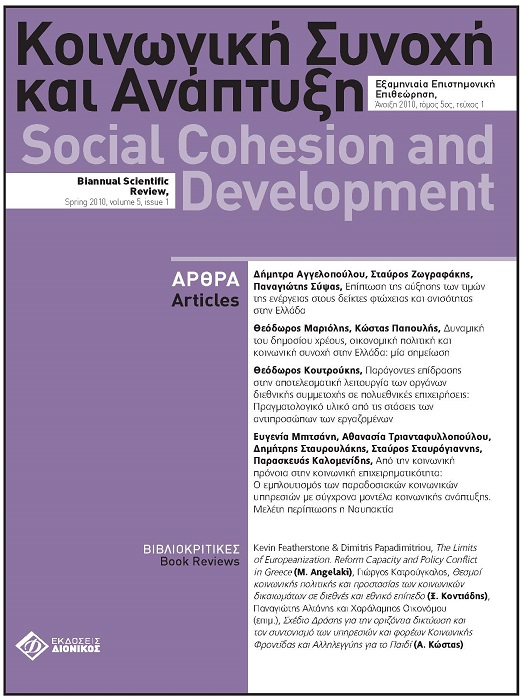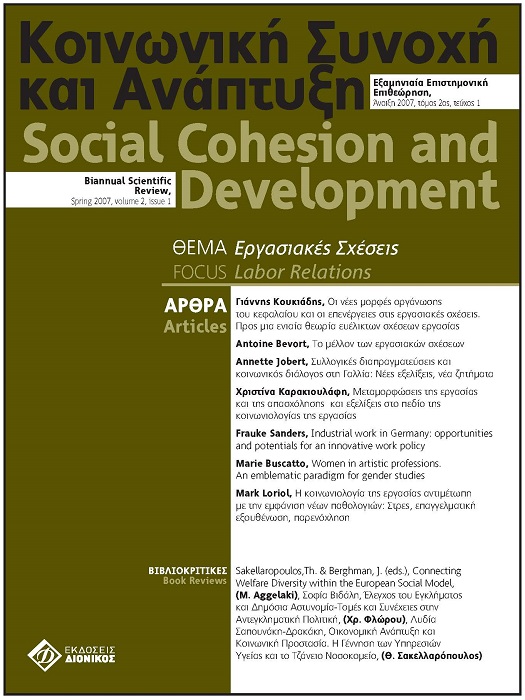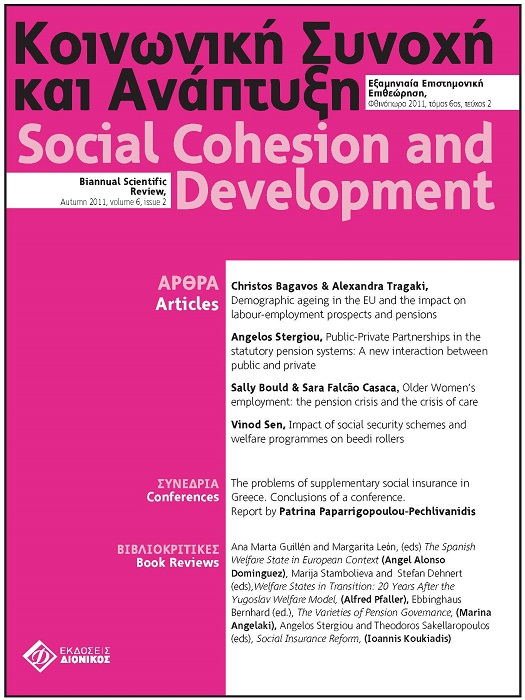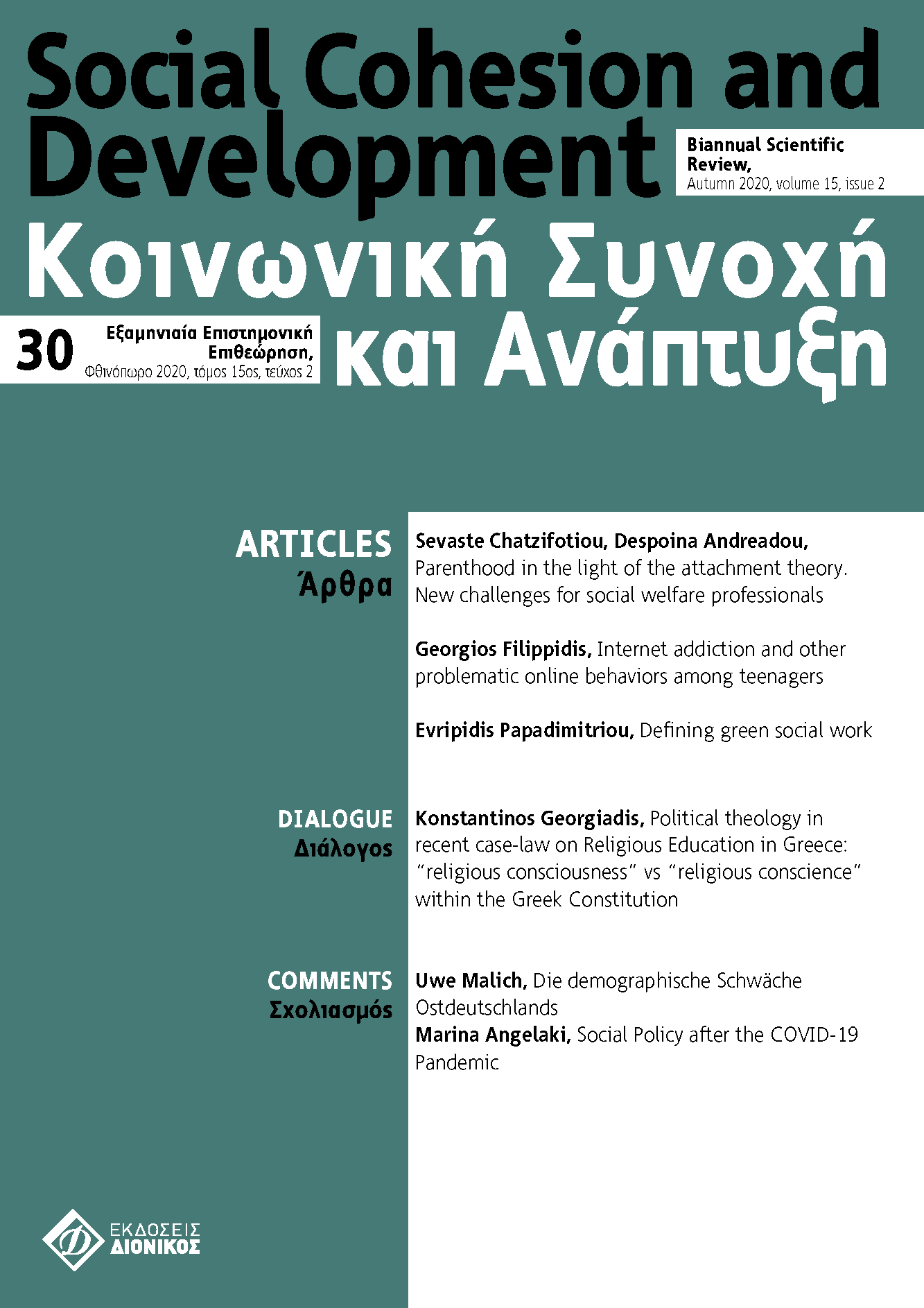Applying the open method of co-ordination back home: the case of Greek pension policy
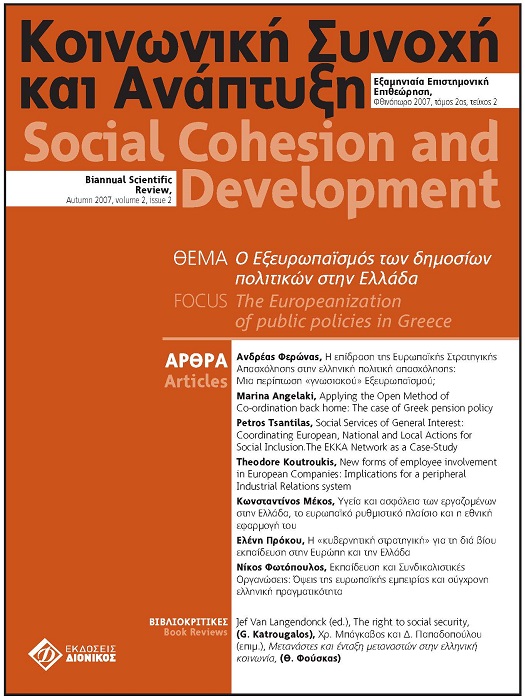
Abstract
The launch of the Lisbon Strategy (original and revised) and the introduction of the Open Method of Co-ordination (OMC) mark a new phase in the Europeanization of social policy, characterized by a non-binding form of collaboration between member states. The aim of this paper is to contribute to the Europeanization debate by analyzing and assessing the Greek response to the OMC in the field of pensions. This will be done by focusing on the elaboration of the National Strategy Reports (NSRs), the participation of Greek representatives in European Committees and the mutual learning of the potential process in an attempt to identify the interaction of the administrative system with different elements of the OMC process. The empirical evidence reveals its isolated character and its failure to stimulate a reflection on existing policies, which in turn is explained by Greece’s inability to come to terms with decentralized and participative processes.
Article Details
- How to Cite
-
Angelaki, M. (2016). Applying the open method of co-ordination back home: the case of Greek pension policy. Social Cohesion and Development, 2(2), 129–138. https://doi.org/10.12681/scad.9046
- Section
- Articles

This work is licensed under a Creative Commons Attribution-NonCommercial-ShareAlike 4.0 International License.
Authors who publish with this journal agree to the following terms:
- Authors retain copyright and grant the journal right of first publication with the work simultaneously licensed under a Creative Commons Attribution Non-Commercial License that allows others to share the work with an acknowledgement of the work's authorship and initial publication in this journal.
- Authors are able to enter into separate, additional contractual arrangements for the non-exclusive distribution of the journal's published version of the work (e.g. post it to an institutional repository or publish it in a book), with an acknowledgement of its initial publication in this journal.
- Authors are permitted and encouraged to post their work online (preferably in institutional repositories or on their website) prior to and during the submission process, as it can lead to productive exchanges, as well as earlier and greater citation of published work (See The Effect of Open Access).



